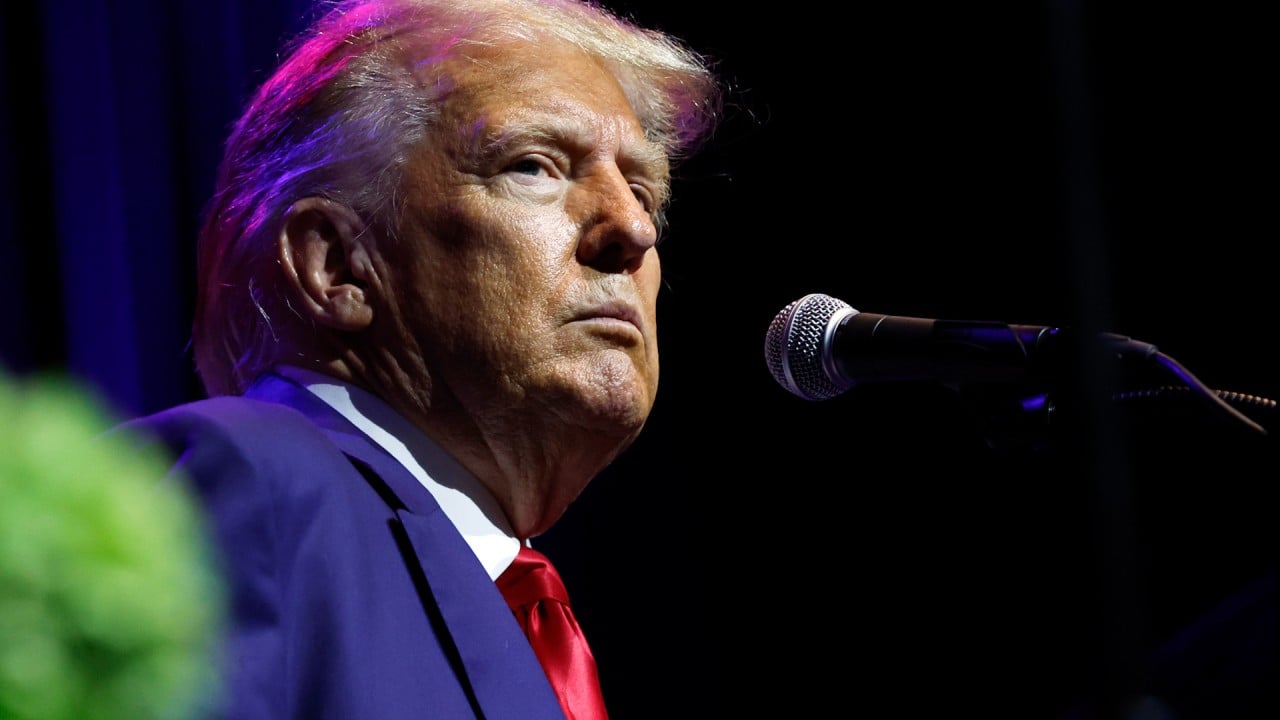Wednesday’s development came a day after Trump’s legal team filed an appeal against a ruling by Maine’s Democratic Secretary of State, Shenna Bellows, that Trump was ineligible to appear on that state’s ballot over his role in the Capitol attack. Both the Colorado Supreme Court and the Maine secretary of state’s rulings are on hold until the appeals play out.
Trump’s critics have filed dozens of lawsuits seeking to disqualify him in multiple states. He lost Colorado by 13 percentage points in 2020 and does not need to win the state to gain either the Republican presidential nomination or the presidency. But the Colorado ruling has the potential to prompt courts or secretaries of state to remove him from the ballot in other, must-win states.
None had succeeded until a slim majority of Colorado’s seven justices – all appointed by Democratic governors – ruled last month against Trump. Critics warned that it was an overreach and that the court could not simply declare that the January 6 attack was an “insurrection” without a judicial process.
Trump appeals Maine ruling barring him from primary ballot
Trump appeals Maine ruling barring him from primary ballot
Trump’s new appeal to the US Supreme Court also follows one from Colorado’s Republican Party. Legal observers expect the High Court will take the case because it concerns unsettled constitutional issues that go to the heart of the way the country is governed.
Sean Grimsley, a lawyer for the plaintiffs seeking to disqualify Trump in Colorado, said on a legal podcast called “Law, disrupted” that he hopes the nation’s highest court hurries once it accepts the case, as he expects it will.
“We have a primary coming up on Super Tuesday and we need to know the answer,” Grimsley said.
Along with the formal appeal, Trump’s campaign branded the Colorado ruling “an un-American, unconstitutional act of election interference which cannot stand.”
The Colorado High Court upheld a finding by a District Court judge that January 6 was an “insurrection” incited by Trump. It agreed with the petitioners, six Republican and unaffiliated Colorado voters whose lawsuit was funded by a Washington-based liberal group, that Trump clearly violated the provision. Because of that, the court ruled he is disqualified just as plainly as if he failed to meet the Constitution’s minimum age requirement for the presidency of 35 years.
In doing so, the state High Court reversed a ruling by the lower court judge that said it was not clear that Section 3 was meant to apply to the president. That is one of many issues the nation’s highest court would consider.
Additional ones include whether states such as Colorado can determine who is covered by Section 3, whether congressional action is needed to create a process to bar people from office, whether January 6 met the legal definition of insurrection and whether Trump was simply engaging in First Amendment activity that day or is responsible for the violent attack, which was intended to halt certification of Democrat Joe Biden’s victory. Trump held a rally before the Capitol attack, telling his supporters that “if you don’t fight like hell, you’re not going to have a country any more.”
Six of the US Supreme Court’s nine justices were appointed by Republicans, and three by Trump himself.
The Colorado ruling cited a prior decision by Neil Gorsuch, one of Trump’s appointees to the High Court, when he was a federal judge in Colorado. That ruling determined that the state had a legitimate interest in removing from the presidential ballot a naturalised US citizen who was ineligible for the office because he was born in Guyana.
The provision has barely been used since the years after the Civil War, when it kept defeated Confederates from returning to their former government positions. The two-sentence clause says that anyone who swore an oath to “support” the Constitution and then engaged in insurrection cannot hold office unless a two-thirds vote of Congress allows it.
Maine becomes second state to bar Trump from presidential primary
Maine becomes second state to bar Trump from presidential primary
Legal scholars believe its only application in the 20th century was being cited by Congress in 1919 to block the seating of a socialist who opposed US involvement in World War I and was elected to the House of Representatives.
But in 2022, a judge used it to remove a rural New Mexico county commissioner from office after he was convicted of a misdemeanour for entering the US Capitol on January 6. Liberal groups sued to block Republicans Madison Cawthorn and Marjorie Taylor Greene from running for re-election because of their roles on that day. Cawthorn’s case became moot when he lost his primary in 2022, and a judge ruled to keep Greene on the ballot.
Some conservatives warn that, if Trump is removed, political groups will routinely use Section 3 against opponents in unexpected ways.
Biden’s administration has noted that the president has no role in the litigation.


